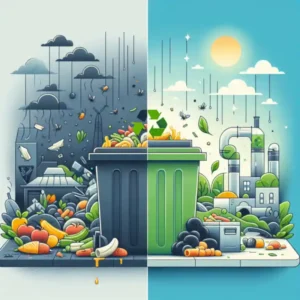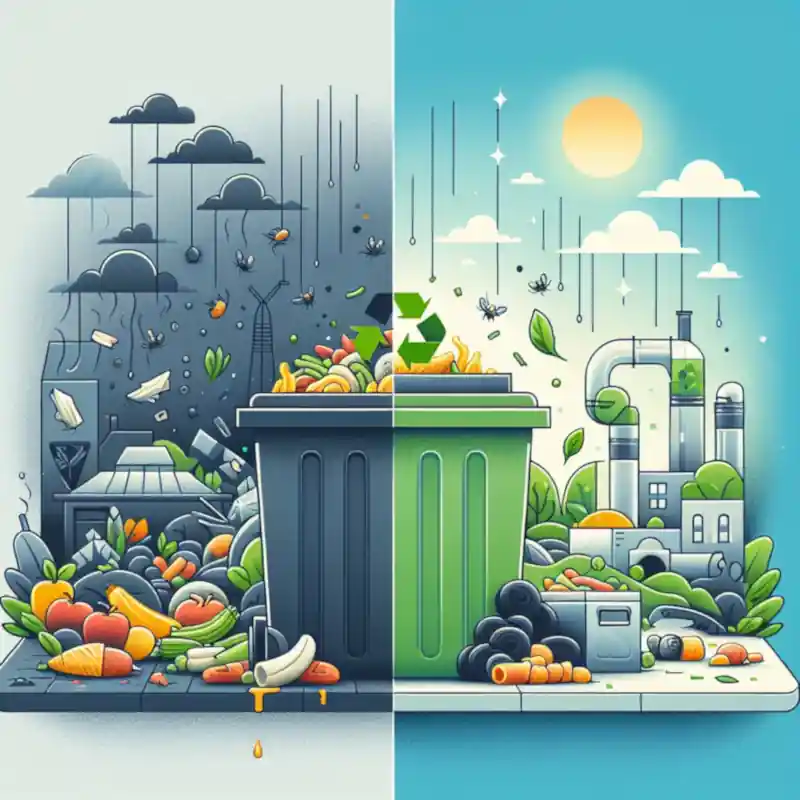The management and regulation of food waste have become increasingly important issues in the recent years due to environmental, health, and economic concerns. Understanding food waste processing regulations is crucial for businesses and households alike.
Food waste refers to food that is discarded or lost uneaten. It includes parts of food such as peels, rinds, and cores, but also edible food that is not consumed. This can be due to a variety of reasons such as overproduction, spoilage, or even just consumer preferences.
When it comes to regulations around food waste processing, there are several key elements that should be considered. These include the segregation of waste, the transportation of waste, the treatment process itself and disposal methods.
Firstly, it’s important to understand that certain types of waste must be segregated from general waste, and from other types of food waste. Some jurisdictions may require businesses and households to have separate containers for different types of wastes.
Understanding Animal By-products Regulations in the UK
What Are Animal By-products?
Animal by-products (ABPs) are parts of animals that aren’t intended for human consumption. This includes everything from fallen stock and slaughterhouse waste to kitchen scraps containing meat products.
The Regulations
The Animal By-products Regulations implement EU Regulation 1069/2009 and Commission Regulation 142/2011 in the UK. Following Brexit, these regulations have been retained in UK law with some modifications.
Territorial Application
- England: Animal By-Products (Enforcement) (England) Regulations 2013
- Scotland: Animal By-Products (Enforcement) (Scotland) Regulations 2013
- Wales: Animal By-Products (Enforcement) (Wales) Regulations 2014
- Northern Ireland: Continues to follow EU regulations under the Northern Ireland Protocol
Historical Context: Response to Disease Outbreaks
The regulations were strengthened following devastating foot-and-mouth disease outbreaks, particularly:
- The 1967 outbreak
- The 2001 crisis that led to the culling of over 6 million animals
- The 2007 outbreak in Surrey
These incidents highlighted the need for stricter controls on:
- Animal waste disposal
- Feeding practices
- Movement and processing of animal by-products
Key Requirements
- Proper categorisation of ABPs into Categories 1, 2, and 3
- Correct storage and identification
- Approved disposal methods
- Record keeping
- Registration of facilities
- Safe transport requirements
Further Information
For detailed guidance, visit:
- DEFRA Guidance on ABP
- Food Standards Agency ABP Information
- Scottish Government ABP Guidance
- DAERA Northern Ireland ABP Information
For specific technical requirements or commercial advice, consult your local Animal Health office or approved veterinary professional.
UK Waste Transportation Regulations
Transportation regulations are another important aspect when it comes to managing food waste. Some jurisdictions may require special permits or licenses for vehicles transporting large amounts of food waste. There may also be regulations about where such vehicles are allowed to travel and during what hours.
The treatment process for food waste varies depending on the jurisdiction. Some popular methods include composting, anaerobic digestion (which produces biogas), recycling into animal feed or being used in industrial applications like biofuel production. There are usually strict rules around these processes to ensure they are carried out safely and without harm to the environment.
Compost Quality Standards
Finally, there are also regulations about how treated food waste can be disposed of. For instance, composted material could potentially be used in agriculture or horticulture but might need to meet certain quality standards first.
In addition to these regulatory considerations, there are also practical aspects that need attention when dealing with food waste. These include understanding how different types of foods break down and how to properly store food waste to reduce odors and pests.

It’s also important to note that regulations can vary greatly depending on your location. Some countries or states have very strict rules around food waste, while others may be less stringent. It’s important for businesses and households to familiarize themselves with the regulations in their area.
One of the most effective ways to navigate these regulations is by reducing food waste in the first place. This can be achieved through careful planning and purchasing, proper storage, and creative uses for leftovers as described in our free depackaging and separation equipment guide.
In conclusion, understanding food waste processing regulations is essential for those who generate significant amounts of it. By doing so, they can ensure they’re compliant with local laws, protect the environment, and potentially even save money.

